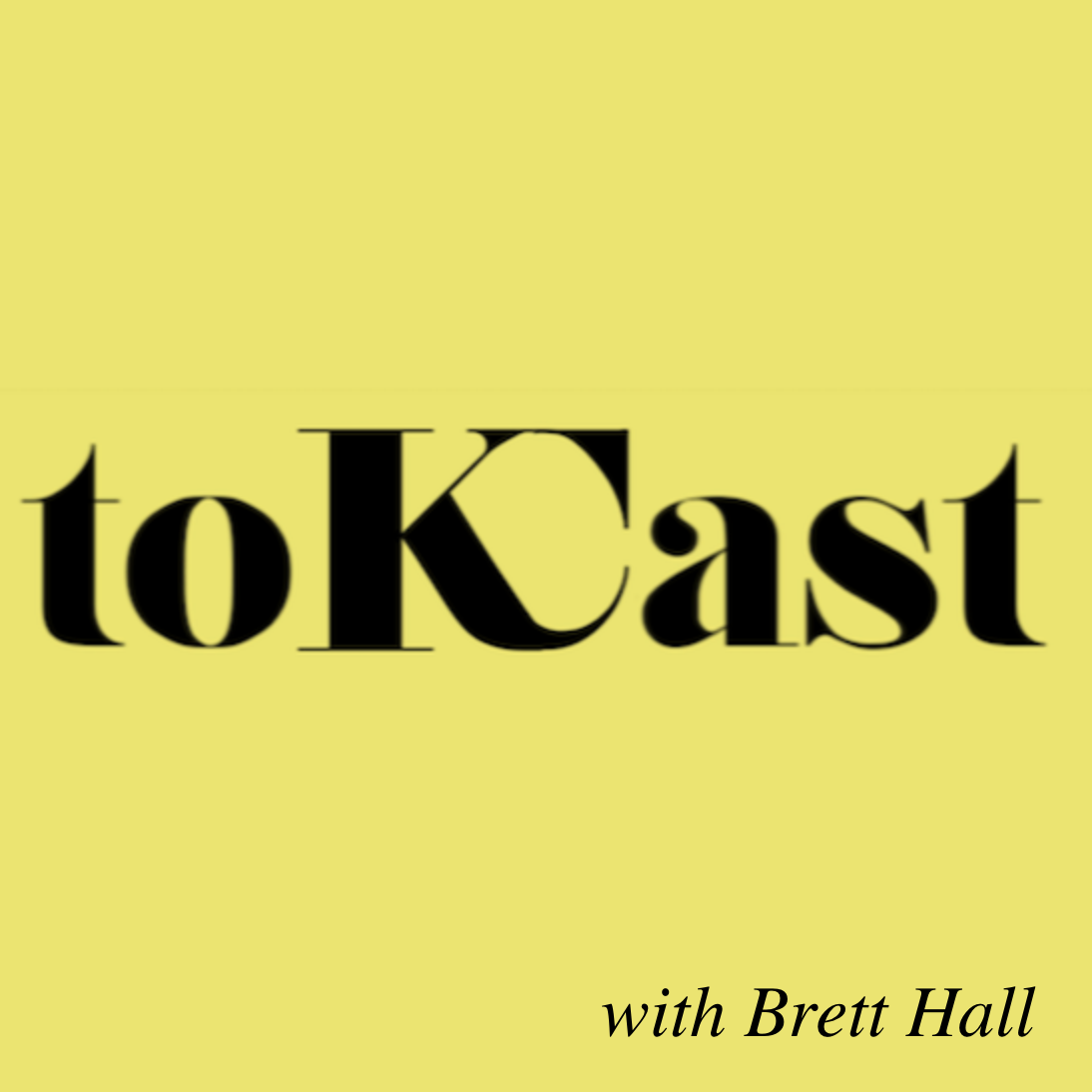

ToKCast
Brett Hall
This is a podcast largely about the work of David Deutsch and his books ”The Beginning of Infinity” and ”The Fabric of Reality”.
Episodes
Mentioned books

Mar 17, 2023 • 1h 3min
Ep 182: Livestream Science News and AMA
Thursday 16 March 2023 Livestream - Patreon and Twitter Questions and Science News Articles discussed: JWST news: https://www.space.com/james-webb-space-telescope-star-soon-go-supernova-photos Volcanoes on Venus: https://www.forbes.com/sites/jamiecartereurope/2023/03/15/venus-is-volcanically-active-right-now-say-scientists-using-32-year-old-images/?sh=7e868b8fd11f Plagues in Africa killing amphibian: https://www.forbes.com/sites/roberthart/2023/03/15/a-skin-eating-fungal-plague-is-silently-tearing-through-wildlife-across-africa-scientists-warn/?sh=3086d9573f02 ChatGPT4: https://www.forbes.com/sites/gabrielasilva/2023/03/14/the-chatgpt-debate-are-we-intelligent-enough-to-understand-intelligence/?sh=2246e1c684f2

Mar 16, 2023 • 1h 17min
Ep 181: The Big Bang Livestream ToKCast
Reading a short chapter from "What's Eating the Universe?" by Paul Davies titled "The Big Bang" - and adding some exposition and commentary. Also: AMA as time permits. As always I do not monetise anything (there are no ads/I get zero income from youtube) - but if you'd like to support me just go to www.bretthall.org and follow the links to donate. Also the "superchat" feature in Youtube is something that would get to me.

Mar 15, 2023 • 2h 10min
Ep 180: Livestream: ”The Open Hand of Reason”
Defending reason and rationality via a discussion of material at https://www.ecosophia.net/blogs-and-essays/the-well-of-galabes/the-clenched-fist-of-reason/ after a question from a listener.

Mar 13, 2023 • 1h 35min
Ep 179: Livestream March 14, 2023
I did a livestream on Youtube and this is the audio taken from that. Questions were taken from Twitter and Youtube. The first 20 mins or so of this episode is a response to a question about Sam Harris' recent "Making Sense" podcast featuring Stuart Russell and Gary Marcus called "The Trouble with AI". Then there are questions from all over the place :)

6 snips
Mar 10, 2023 • 51min
Ep 178: Its, Bits, Qubits *Part 2*
This is the second part of a two part series. Here we focus exclusively upon "It from Qubit" (2002) by David Deutsch as found here: https://www.daviddeutsch.org.uk/wp-co... I read and comment upon the paper, unpacking its significance for physics, epistemology (i.e: the search for good explanations), metaphysics (ultimate reality beyond what science tells us) and compare this vision of reality to alternatives (for example as presented in the "It from Bit" thesis by Wheeler. The Simulator Hypothesis makes an appearance as does some of the mechanics behind quantum computation itself. But, overall, this is a work stranding physics and philosophy namely: what the former can tell us about having an informed explanation of the latter. To that end both Einstein and Popper are quoted by Deutsch herein.

Mar 9, 2023 • 1h 5min
Ep 177: Its, Bits, Qubits. Part 1
This is the first in a two part series unpacking, breaking down, reading, reflecting and commenting upon David Deutsch’s paper “It from Qubit” available here: https://www.daviddeutsch.org.uk/wp-content/ItFromQubit.pdf or here https://philpapers.org/rec/DEUIFQ or even as the chapter of a Barrow and Davies book here: https://www.cambridge.org/core/books/abs/science-and-ultimate-reality/it-from-qubit/BA7B507C25C37B180FC34802555D4423 I will be referring to the Chapter of the book (that matters as you will hear!). This, the first part, lays the groundwork for discussing “It from Qubit” by first discussing the thesis that went before, coined and explained by John Wheeler: It from Bit. Wheeler, as you will hear in this episode, had an absolutely astonishing “life in physics”. Here we discuss that man, his view and the science and philosophy of “It from Bit”. As a teaser recognise that Wheeler supervised both Richard Feynman and Hugh Everett, collaborated with Einstein and Bohr and is named as one of the two biggest professional influences upon David Deutsch by David Deutsch (references herein).

Mar 6, 2023 • 1h 1min
Ep 176: David Deutsch’s ”The Fabric of Reality” Chapter 9 ”Quantum Computers” Part 2
Here we discuss the inherent differences between classical and quantum physics. Systems representing both can exhibit "unpredictable" behaviour - so what is the difference? In classical physics chaos theory is a genuine phenomena - but only in theory. The real world does not obey classical physics. It obeys quantum theory and there, that kind of "chaos" simply does not happen. The Butterfly effect is therefore false in reality for reasons explained herein. Those classical effects cause classical systems to be unpredictable due to the sensitivity of systems to initial conditions which cannot be specified, or known, with perfect precision. But quantum systems can be "intractable" making them unpredictable for different reasons. Rather than being a barrier to knowledge and computation this is an opportunity. We discuss Feynman and then Deutsch's own contribution to the field of quantum computation.

Mar 3, 2023 • 58min
Ep 175: Science News 1: Population III - The First Generation of Stars in the Universe Observed?
I strongly recommend this episode be watched on Youtube at https://www.youtube.com/watch?v=r15jeZaNBHs However audio only listeners should still be able to follow along.
This, the first in a new series is "science news" from a critically empiricist and rationalist perspective. Have the first generation of stars - usually known as Population III stars, been observed by the James Webb Space Telescope? More background and context than you can poke a spectroscope at.

Feb 13, 2023 • 29min
Ep 174: A message for next millennium.
I strongly recommend watching the video version of this podcast which is here: https://www.youtube.com/watch?v=6_2tOxitykU&t=1s&ab_channel=BrettHall
What could we say to the people of the year 3025 that might be of use to them? Given they should know everything we know and far, far more I see only one situation where any knowledge we possess would be found insightful to them. So here is my discussion of all that.

Jan 29, 2023 • 49min
Ep 173: Brett Talks Twitter 2
Some random thoughts about random tweets. Ok, so not entirely random. Actually on physical law: not random at all). Better: some thoughts on some interesting tweets.


